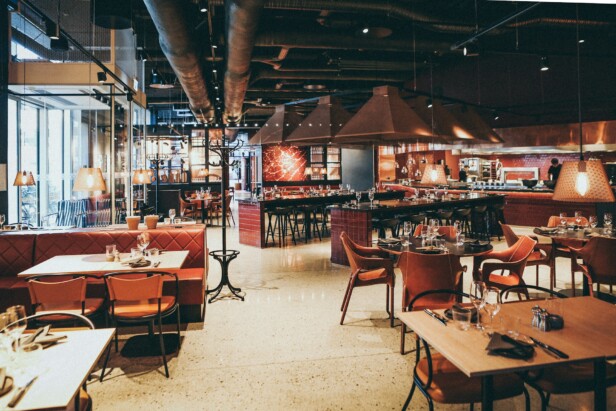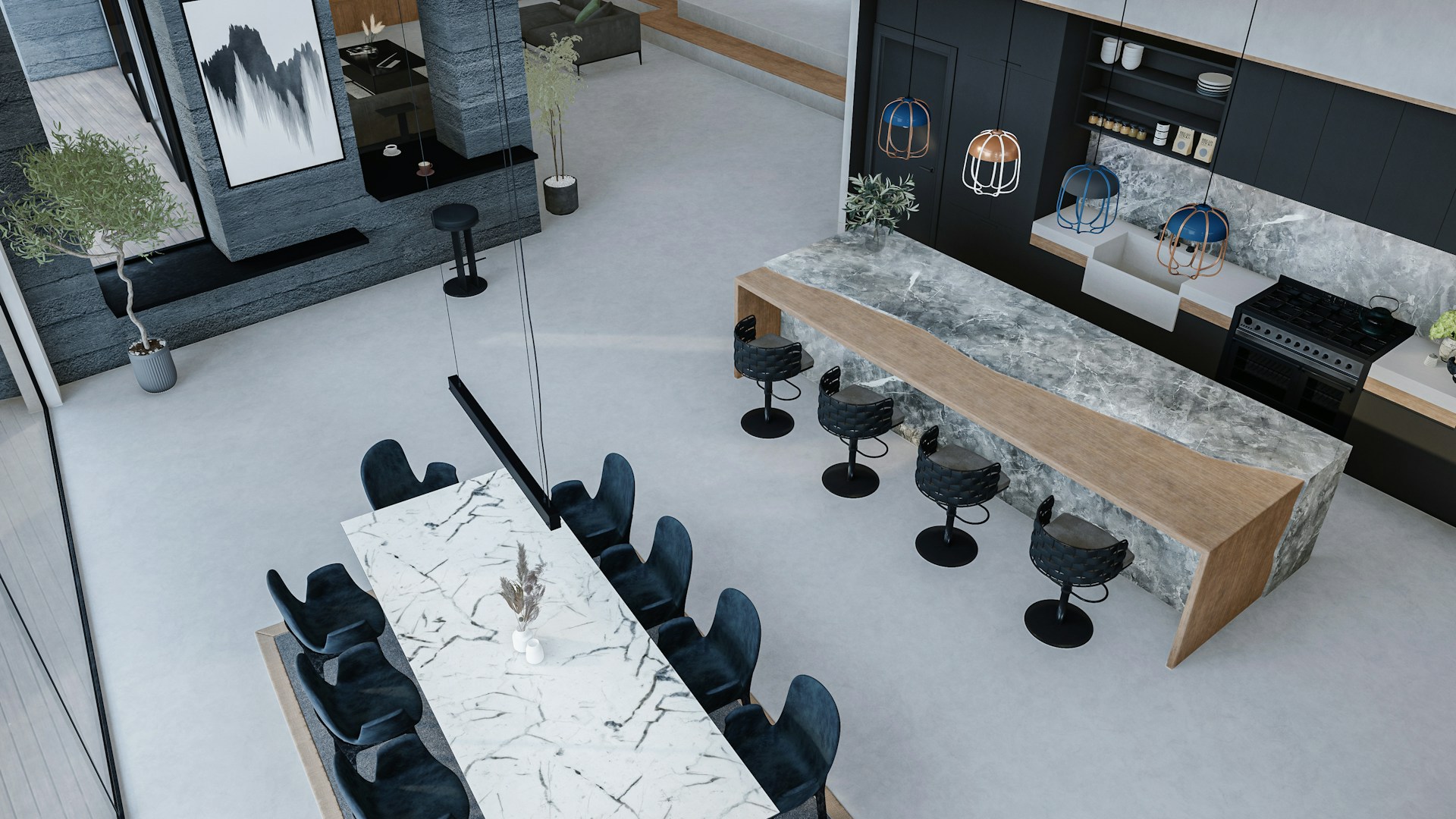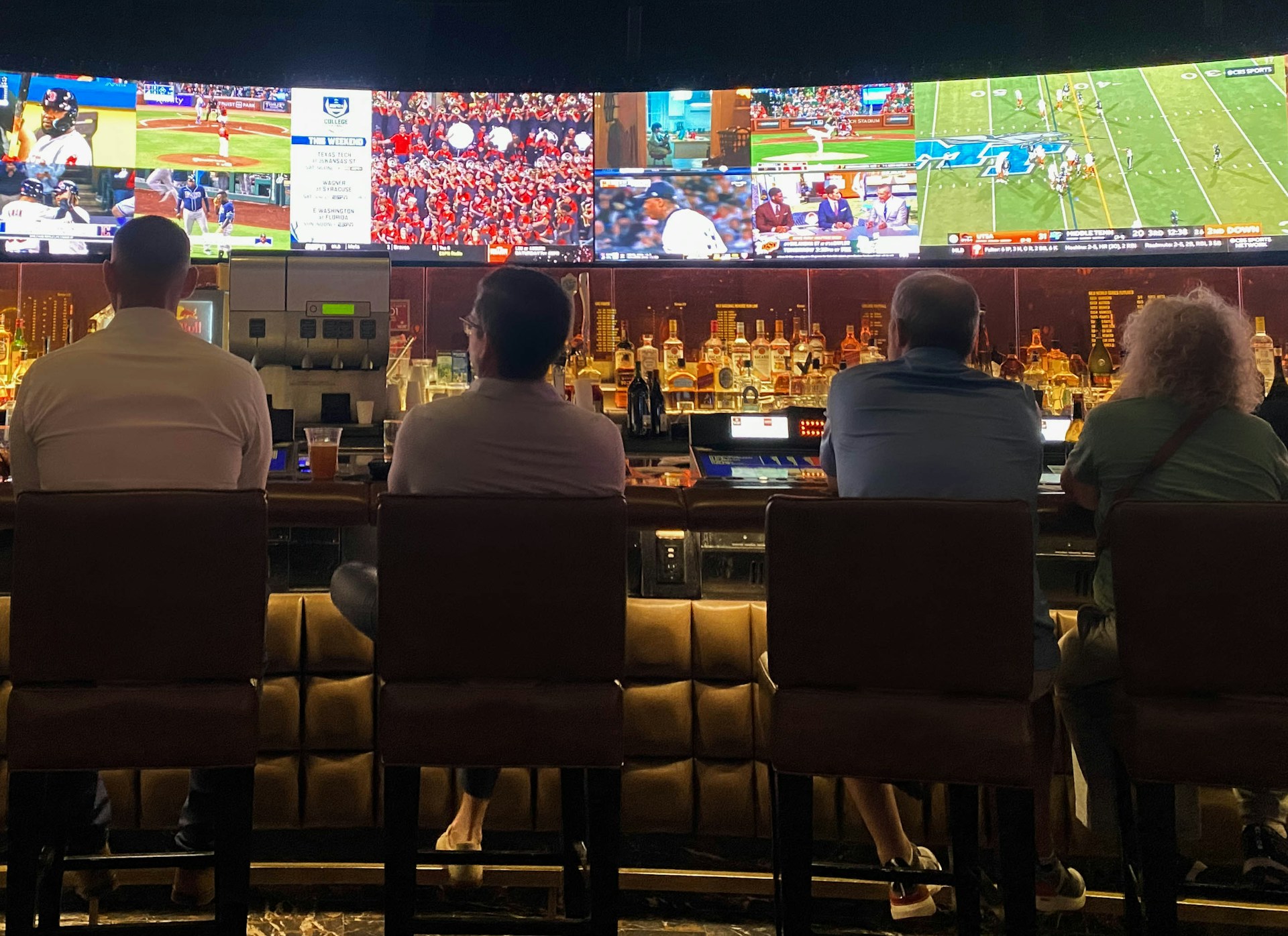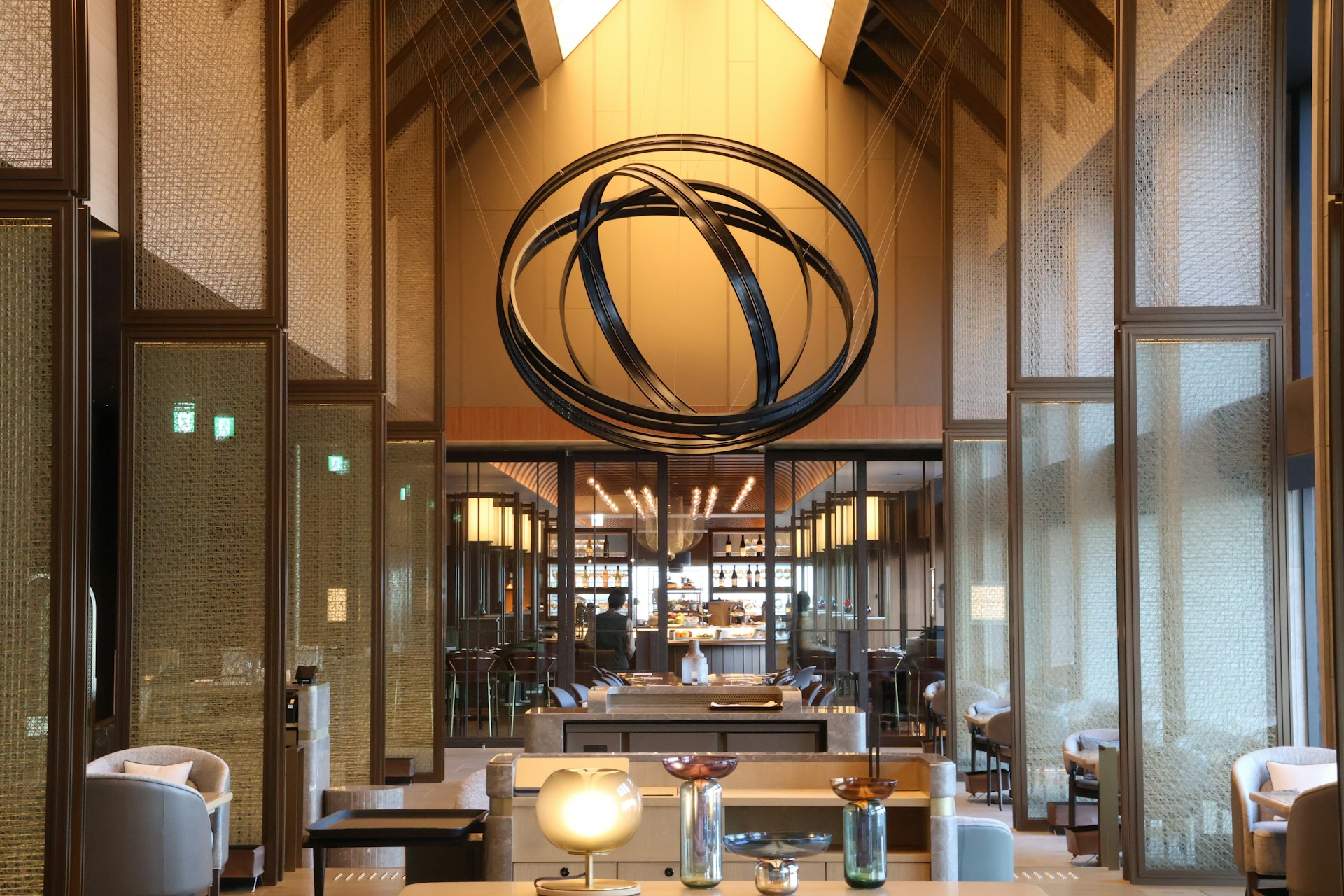Restaurant construction projects require 30% more coordination than typical commercial builds due to complex health codes and specialized equipment requirements. These projects demand contractors who understand both construction fundamentals and the unique operational demands of food service environments.
Restaurant building contractors manage the complete transformation of raw commercial space into functional dining establishments. We coordinate pre-construction planning, design-build integration, and construction execution while ensuring compliance with health codes, ADA requirements, and brand specifications across diverse restaurant formats.
Which Services Do Restaurant Building Contractors Provide Across The Project Lifecycle?

We coordinate the full lifecycle of restaurant development, from initial concept analysis through final certificate of occupancy. Our services span every project phase to deliver functional, code-compliant spaces that support your operational requirements and brand standards.
Pre-Construction Planning And Analysis
We begin each project with comprehensive site assessment and feasibility analysis. This includes reviewing existing infrastructure, evaluating utility capacity, and identifying potential challenges before construction begins. Early planning prevents costly surprises during the build phase.
Our pre-construction team conducts thorough code review sessions with local authorities. We map out permitting paths specific to your location and project type. Budget development considers all phases of construction, from sitework through final inspections, giving you accurate cost projections from the start.
Delivery Method Options
We offer flexible delivery approaches to match your project needs and timeline. General contracting works well when architectural plans are finalized and the focus centers on execution excellence. Our team manages all trades, materials, and scheduling while maintaining clear communication throughout the build.
Design-build services integrate planning and construction under unified management. This approach streamlines decision-making and often reduces overall project duration. We coordinate directly with architects and engineers, eliminating communication gaps that can delay restaurant openings.
Construction Scope Capabilities
Ground-up construction encompasses complete restaurant development from foundation to finishing touches. We handle site preparation, utility connections, and structural work while coordinating with local authorities for all required inspections and approvals.
Tenant finish projects transform raw commercial space into operational restaurants. These builds typically include kitchen installation, dining area construction, and all MEP systems required for food service operations. Complete build-outs cover every aspect needed to open your doors to customers.
Renovation And Remodel Services
We execute restaurant remodeling projects that refresh existing spaces while maintaining operational capability. Kitchen renovations often require precise coordination to minimize service disruption. Our teams work efficiently to upgrade equipment, finishes, and layouts within compressed timeframes.
Commercial renovation services address both front-of-house and back-of-house improvements. We handle everything from dining room refreshes to complete kitchen overhauls. Drive-thru remodels require specialized expertise in traffic flow, equipment placement, and customer service optimization.
Multi-Site Programs
Rollouts and refreshes standardize construction processes across multiple locations. We develop detailed specifications and procedures that ensure consistent quality and branding across your restaurant portfolio. These programs often include accelerated scheduling to meet corporate timeline requirements.
Brand standards compliance guides every aspect of our multi-site work. We maintain detailed documentation of approved materials, finishes, and construction methods. This consistency helps protect your brand identity while streamlining the approval process at each location.
Specialized Compliance Work
ADA remediation ensures your restaurant meets all accessibility requirements. We evaluate existing conditions and implement necessary modifications, from entrance improvements to restroom updates. Our approach integrates compliance work seamlessly with your overall renovation scope.
Health and safety standards compliance touches every aspect of restaurant construction. We coordinate with health departments throughout the project, ensuring all systems meet or exceed local requirements. Fire suppression, ventilation, and food preparation areas receive particular attention during planning and installation phases.
How Do Codes, Safety, And Open-Store Conditions Impact Restaurant Projects?
Restaurant construction requires compliance with multiple regulatory layers that affect every phase of work. Health codes dictate food preparation areas, storage requirements, and sanitation systems. ADA compliance ensures accessibility through entrance widths, restroom configurations, and seating arrangements. Building codes govern structural elements, electrical systems, and fire safety measures while zoning compliance addresses land use restrictions and operational parameters.
Managing Open-Store Remodels
We often execute restaurant remodels while operations continue, which creates unique construction challenges. Phased construction becomes essential to maintain customer access and staff workflow. We sequence work to isolate construction zones from active dining areas and kitchen operations.
Dust control requires plastic barriers, air scrubbers, and negative air pressure systems to prevent contamination of food preparation spaces. Construction teams use specialized equipment to contain particulates and maintain air quality standards. We schedule dusty work like demolition and drywall finishing during closed hours when possible.
Noise control protects both guest experience and worker safety. We coordinate heavy equipment use, concrete cutting, and mechanical installations to minimize disruption during peak service hours. Sound blankets and temporary walls help reduce decibel levels in occupied areas.
Jobsite Safety In Active Restaurants
Construction safety becomes more complex when customers and staff share the space with active work zones. We establish clear separation between construction areas and public spaces using physical barriers and safety signage. Guest safety protocols include secure pedestrian routes, proper lighting, and elimination of trip hazards.
Worker protection requires strict adherence to OSHA standards while accommodating restaurant operations. Personal protective equipment becomes non-negotiable, and we enforce safety procedures through regular training and site monitoring. Emergency procedures must account for both construction workers and restaurant occupants.
Downtime mitigation involves careful coordination between construction schedules and restaurant operations. We work with management to identify low-impact periods for critical work phases. Project management tools help us track progress, coordinate trades, and communicate schedule changes to minimize operational disruption.
Which Delivery Methods And Execution Models Work Best For Restaurants?

The project delivery method shapes how we coordinate teams, manage timelines, and control costs throughout a restaurant build. Each approach serves different project types and owner priorities.
Design-Build For Streamlined Coordination
Design-build integrates design and construction under one team, eliminating handoff delays between separate firms. We handle both architectural planning and construction execution, creating direct accountability for schedule and budget performance. This method works well when owners want single-point responsibility and faster project delivery.
The streamlined communication reduces change orders and design conflicts that typically emerge when architects and contractors work separately. Our design-build teams can make real-time decisions about constructability, materials, and systems during the design phase rather than discovering issues after construction begins.
General Contracting For Execution Focus
General contracting fits projects where design is complete and the focus shifts to construction execution. We take finished plans and specifications, coordinate specialty subcontractors, and manage the build process. This approach gives owners more control over design decisions while transferring construction risk to our team.
General contracting works effectively for restaurant owners who prefer working directly with architects during design or have specific design requirements that need independent oversight. We manage MEP coordination, specialty subcontractors, and construction sequencing while the design team maintains quality control over their original vision.
Rollouts And Refresh Programs For Multi-Site Brands
Multi-site restaurant brands benefit from rollout and refresh programs that standardize construction processes across multiple locations. We develop repeatable systems for site evaluation, design adaptation, permitting, and construction sequencing. These programs reduce per-unit costs and compress timelines through proven processes.
Refresh programs update existing locations with new brand standards, equipment upgrades, or layout improvements. We coordinate these updates during low-traffic periods or off-seasons to minimize revenue impact. Standardized details and pre-approved materials streamline approvals and reduce field decisions.
Specialty Subcontractors For Consistent Results
Restaurant construction relies on specialty subcontractors who understand food service requirements. We work with kitchen equipment installers, commercial HVAC contractors, and finishes specialists who know restaurant codes and brand standards. These partnerships ensure consistent quality across projects and locations.
MEP coordination becomes critical in restaurant spaces where kitchen equipment, ventilation systems, and electrical loads interact closely. Our specialty subcontractors understand these relationships and can sequence work to avoid conflicts between trades. This coordination prevents delays and rework during construction.
Pre-Construction Planning For Budget And Schedule Control
Clear pre-construction planning sets realistic budgets and schedules before construction begins. We review architectural plans, assess site conditions, and identify potential challenges during the planning phase. This upfront investment prevents surprises and change orders during construction.
Scope control and progress tracking tools help us monitor performance against established budgets and timelines. We use project management systems to track material deliveries, inspection schedules, and milestone completion. Regular progress reports keep owners informed and allow for early intervention when issues arise.
How Do Needs Differ For QSR, Cafes, And Full-Service Restaurants?
Each restaurant segment brings distinct construction requirements that we manage differently. QSR construction demands fast execution and operational efficiency. Coffee shop build-outs prioritize workflow and customer comfort. Full-service dining projects focus on atmosphere and guest experience.
Quick-Service Restaurant Construction Demands
QSR construction centers on speed and precision. We design kitchen layouts that support high-volume food preparation with dedicated zones for cooking, assembly, and packaging. Drive-thru remodels require careful planning for traffic flow, speaker placement, and pickup windows that maintain service speed.
Schedule compression drives every decision in QSR projects. We coordinate MEP systems to support rapid cooking equipment and point-of-sale technology. Brand specifications often dictate exact equipment placement, counter heights, and service line configurations that we must execute precisely.
Open-store construction becomes critical for established QSR locations. We phase work during off-peak hours and use dust barriers to maintain food safety standards. Kitchen layout modifications happen systematically to avoid disrupting daily operations.
Coffee Shop Build-Out Considerations
Coffee shop construction emphasizes compact efficiency and customer flow. We design equipment zones that maximize espresso machine placement, grinder positioning, and storage within limited square footage. Counter layouts must support both order-taking and drink preparation without creating bottlenecks.
Guest flow patterns shape our approach to cafe construction. We plan seating arrangements that encourage both quick visits and extended stays. Electrical and plumbing rough-ins accommodate specialty equipment like commercial espresso machines and water filtration systems.
Acoustic planning becomes essential in coffee shop projects. We select materials and design layouts that control noise from espresso machines and grinders while maintaining comfortable conversation levels.
Full-Service Dining Construction Requirements
Full-service dining projects demand attention to guest experience details. We coordinate lighting systems that create ambiance while supporting staff operations. Acoustic treatments control noise levels between dining rooms and service areas.
Front-of-house finishes require careful material selection and installation. We manage flooring, wall treatments, and ceiling details that align with brand design specifications. Kitchen layouts must support complex menu preparation while maintaining efficient service flow to dining rooms.
Phased construction often becomes necessary for full-service restaurant remodels. We sequence work to maintain partial operations or plan complete shutdowns during slower business periods. Brand specifications typically include detailed finish schedules and custom millwork that we coordinate with specialty subcontractors.
Conclusion And Next Steps

Restaurant construction success hinges on balancing regulatory compliance, safety protocols, brand consistency, and project schedules. Each project requires careful coordination of health codes, ADA requirements, and local building standards while maintaining the operational flow that keeps businesses profitable.
Define your project scope early. Ground-up construction offers complete design control but requires longer timelines and higher investment. Tenant improvements and remodels provide faster market entry while working within existing structural constraints. We recommend gathering brand guidelines, health department specifications, and ADA compliance requirements before design begins. Select a delivery method that aligns with your timeline and budget constraints, whether through design-build integration or traditional general contracting approaches.
For multi-site rollout programs, standardize construction details, finishes, and operational sequences. Plan for open-store construction when necessary, incorporating dust control, noise management, and phased work schedules that protect ongoing business operations. Pre-construction alignment between all stakeholders creates the foundation for smooth project execution from initial design through grand opening.
Contact EB3 Construction to discuss how we can support your restaurant construction planning and execution.




